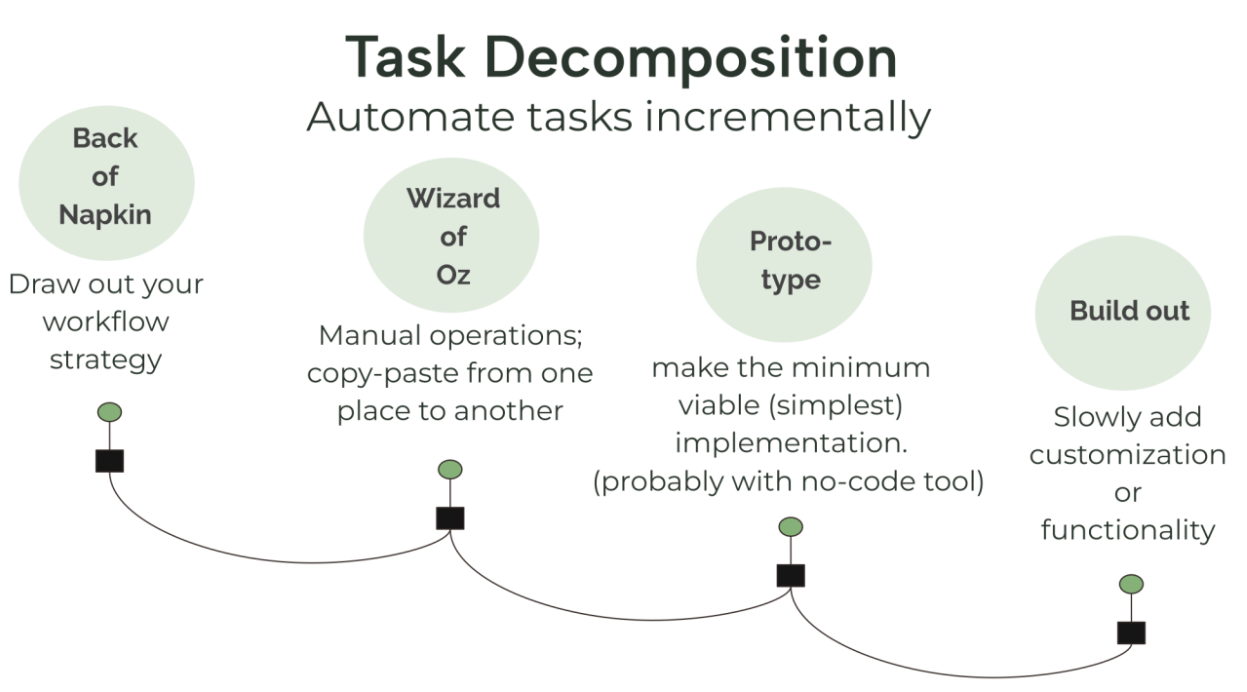This blog was written by our friends at Codecademy, an online interactive platform helping people learn software development and data skills through hands-on, self-paced learning. If you're curious about how to integrate generative AI into your data workflow using visual programming, join us on Wednesday, June 18 at 2 p.m. for a free Codecademy community event with KNIME.
The world of work is transforming rapidly through large language models (LLMs) like ChatGPT and Claude, along with AI agents that work autonomously. Understanding these technologies and building data skills has become essential for professionals across all industries. Not just to stay relevant, but to unlock new opportunities and become more effective in your role.
Why does AI and data literacy matter for your career
LLMs and AI agents are beginning to redefine how work gets done across industries, with early deployments offering a glimpse of what fully autonomous digital collaborators could become. In healthcare, companies like Epic Systems and eClinicalWorks are embedding LLMs into electronic health records to help clinicians forecast patient risks and automate visit summaries reducing admin load. In e-commerce, Amazon's Rufus offers a conversational LLM that assists users in product discovery and decision-making, hinting at future agents that may handle end-to-end shopping. In finance, firms like Visa are deploying generative AI to detect and prevent account fraud in real time, while multi-agent LLM systems are emerging to assist in market analysis, risk assessment, and trading strategies. Marketing teams are starting to adopt LLMs to generate content while AI agents offer to optimize campaigns across multiple platforms.
These technologies aren't replacing workers; they're changing how we work. Those who master the skills to build and collaborate effectively with AI systems are becoming more valuable, while those who resist risk being left behind.
Five essential skills for AI collaboration
To keep pace with developments in AI and make yourself more valuable in the jobs market, here are five skills worth investing time in improving:
1. Prompt Engineering
Learn to provide clear context, specific instructions, and examples to get better AI outputs. Instead of asking "Analyze our sales data," try "Analyze Q3 sales data for our Northeast region, focusing on the 20% decline in enterprise accounts. Include seasonal factors, and competitor activity, and identify the top 3 contributing factors with specific recommendations." This specificity helps AI systems understand exactly what you need and deliver more actionable results.
2. Critical Evaluation
Develop the ability to assess AI-generated content for accuracy and relevance. Always verify important information, especially statistics, dates, and industry-specific claims. For example, if an AI suggests that "70% of customers prefer email communication," cross-check this against your actual customer preference data or recent surveys. AI might be drawn from general studies that don't reflect your specific customer base.
3. Task Decomposition
Break complex projects into tasks that AI agents can handle autonomously while maintaining human oversight. For instance, instead of asking an AI agent to "improve our customer retention," break it down: First analyze current retention rates by customer segment, then identify common characteristics of churned customers, research industry best practices, and finally propose three specific retention strategies with implementation timelines. This structured approach ensures better results and easier validation. Automate in steps, slowly decreasing the level of manual intervention required.

4. Data Interpretation
As AI systems generate insights automatically, interpreting and acting on these insights becomes increasingly valuable. When an AI agent reports that "customer satisfaction dropped 15% after the website redesign," your role is to dig deeper across all user segments. Did mobile users experience different issues than desktop users? How does this correlate with support ticket volume? Your business context helps determine whether this insight requires immediate action or further investigation.
5. AI Workflow Integration
Learn to seamlessly incorporate AI outputs into your existing business processes. For example, use AI to generate initial market research summaries, but then apply your industry knowledge to identify gaps, validate key assumptions, and translate findings into strategic recommendations that align with your company's goals and constraints.
How to start building your AI literacy
Start experimenting with ChatGPT, Claude, or Gemini for work-relevant tasks, writing emails, analyzing data, or brainstorming solutions. Practice crafting prompts and understanding what these systems do well versus where they struggle.
Look for opportunities in your current role where AI can help you. Maybe automating routine research, generating report drafts, or analyzing customer feedback. Start small and expand as you become more comfortable.
Focus on understanding AI capabilities and limitations. LLMs excel at language tasks but may struggle with recent information or highly specialized knowledge. AI agents are powerful for complex workflows but require careful oversight.
The path forward
The integration of LLMs and AI agents into everyday work is accelerating. Organizations embracing this change and developing AI literacy across teams will have significant competitive advantages.
The most successful professionals will effectively collaborate with AI systems with understanding capabilities, directing efforts strategically, and combining AI efficiency with human creativity and judgment.
Start by identifying specific areas where LLMs or AI agents could impact your work. Experiment with available tools, learn from results and gradually expand your AI collaboration skills. Remember: AI literacy isn't about becoming a technologist — it's about becoming a more effective professional who can harness these tools to solve problems and create value.
The question isn't whether these technologies will impact your work as they already are. The question is whether you'll develop the skills to thrive with them. The time to start is now.
